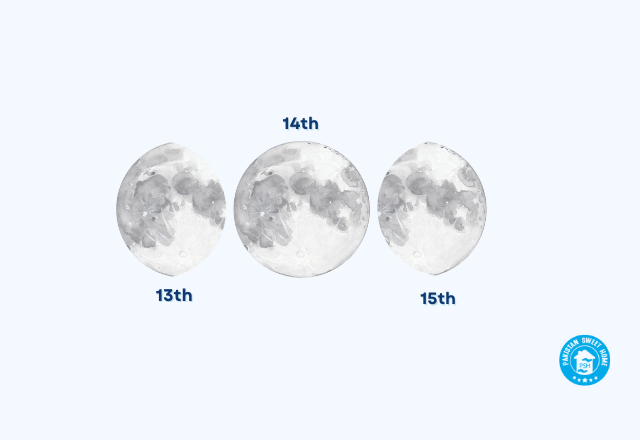
- DONATE
- SPONSOR A CHILD
- Zakat calculator
- SIGN IN
-
- About Us
- FAQ's
- Contact
- Get Involved
- Admissions
- Sign In
- SPONSOR A CHILD ZAKAT CALCULATOR DONATE
-
info@pakistansweethome.org.pk
(051) 4865856
+92 335 1118477

10 min read

Ali ibn Abi Talib (RA) was born around 600 in Mecca, on the 13 Rajab ul Murajab.
He (RA) was the cousin and son-in-law of the Prophet Muhammad (peace be upon him). He (PBUH) had such immense love for Ali (RA) that He encouraged His companions to love him (RA).
Ibn Buraidah narrated that his father said:
"The Messenger of Allah said: 'Allah has commanded me to love four people, and He told me that He also loves them.' He was asked: 'O Messenger of Allah, who are they?' He said: ''Ali is one of them,' and he said that three times, 'and Abu Dharr, Salman and Miqdad.'"
Sunan Ibn Majah 149
Let’s discover when 13 Rajab 2025 is and the life of Ali (RA) and how he (RA) served Islam:
In 2025, the 13th Rajab will likely fall on Sunday, January 13, 2025, depending on moon sighting and geographical location.
Ali is known by many titles, which reflect his character and key events in his life. Some of these names include
Abu Turab comes from a story where Muhammad (PBUH) saw Ali lying in a dust-covered mosque.
He (PBUH) said, "O father of dust, get up."
Ali (RA) was chosen with intention, meaning “someone with great nobility,”.
Besides the Prophet Muhammad (PBUH), no one in Islamic history has had as much written about them as Ali. The main sources about his life are the Hadith, stories about the Prophet's life (Sirah), and early Islamic histories.
Here is an overview of the background and family of Ali (RA):
Birth: Ali ibn Abi Talib (RA) was born in the Islamic Month of Rajab, about 10 years before Prophet Muhammad (PBUH) received his first revelation, according to Ibn Hajar.
Father: Ali’s father was Abu Talib, whose real name was Abd Manaf. Abu Talib was a prominent figure in the Banu Hashim tribe.
Mother: Ali’s mother was Fatima bint Asad, a notable figure as well. She was the first woman from Banu Hashim (the Prophet’s tribe) to accept Islam and is considered one of the earliest converts.
Siblings: Ali had three brothers, Talib, Aqeel, and Ja'far. Each brother was about a decade apart in age, with Talib being the oldest and Ali the youngest.
Wife: Ali remained married to Faṭimah bint Muhammad throughout her life and did not take another wife during that time. Their union holds special spiritual significance for Muslims, as it symbolizes the bond between two of the most revered figures close to the Prophet.
Other Spouses: Um ul Baneen, Leila bint Masoud, Asma bint Umays, Khawlah bint Ja'far, & Al Sahba'bint Rabi'ah
Children: Hasan ibn Ali, Hussain ibn Ali, Hilal ibn Ali, Al-Abbas ibn Ali, Abdullah ibn Ali, Jafar ibn Ali, Uthman ibn Ali, Ubaidullah ibn Ali, Abi Bakr ibn Ali, Umar ibn Ali, & Muhsin ibn Ali, Zainab bint Ali, Umm e Kulthum bint Ali, and Mohsin ibn Ali (probably died in infancy, date disputed)
The following section indicates the profound significance of Ali Ibn Talib's (RA) family in early Islamic history:
Ali (RA) grew up with the Prophet Muhammad because his family was very close to the Prophet’s family. Ali’s (RA) mother, Fatima bint Asad, was like a mother to the Prophet during his early years, from ages 6 to 25.
The Prophet Muhammad's (PBUH) uncle, Abu Talib, steadfastly supported him throughout his life, shielding him from the hostility of their tribe. He took care of Him (PBUH) after the death of Abdul Mutalib, His grandfather. He played a crucial role in protecting the Prophet against those who sought to harm him.
Fatima bint Asad (RA) often gave up her food for the Prophet and her children during hard times, demonstrating her deep care for him. This level of devotion led the Prophet to hold her in high regard, even considering her a motherly figure.
Fatima bint Asad’s (RA) role extended beyond her care for the Prophet (PBUH). She (RA) was considered one of the first ten or eleven people to accept Islam. She (RA) even contemplated making the migration (hijrah) to Abyssinia with her son, Ja'far, to escape persecution in Mecca.
Ali often recalled how the Prophet Muhammad (PBUH) visited his mother frequently and spent extended periods in her home.
When Fatima bint Asad (RA) died in Medina, the Prophet (PBUH) made sure she (RA) received a proper burial. He (PBUH) personally cleared her grave and asked for her body to be placed in it while praying for her forgiveness.
Ali’s brother Ja'far resembled the Prophet (PBUH) in appearance. This resemblance made their mother, Fatima bint Asad (RA), particularly fond of him. Ja'far played a notable role in the early Islamic community and will be discussed further in future sessions.
Ali ibn Abi Talib (RA) holds a unique position in Islamic history. He (RA) is not only the cousin of the Prophet (PBUH) but also someone who grew up alongside him.
His (RA) close relationship with the Prophet (PBUH) from childhood shaped his character. This bond also influenced his future role as one of the most important figures in Islam.
Narrations suggest that Ali (RA) may have been born in the Ka'bah. However, there are more established accounts of Hakeem ibn Hizam being born there.
During a famine, the Prophet (PBUH) and his uncle al-Abbas helped alleviate Abu Talib's financial burden. They offered to raise two of his children to support the family during this difficult time.
The Prophet (PBUH) took young Ali (RA), and al-Abbas took Ja'far, bringing Ali to live with the Prophet (PBUH) and Khadijah (RA).
Remarkably, Khadijah (RA) could have breastfed Ali (RA) and the Prophet (PBUH) could have adopted him. However, this did not happen, ensuring that Ali (RA) would later marry Fatimah (RA).
Ali (RA) grew up in the household of the Prophet (PBUH) and Khadijah (RA). He (RA) witnessed significant moments in their lives, including the Prophet's early experiences with revelation.
One night, Ali (RA), who was still a child, observed the Prophet (PBUH) praying. He (RA) watched as the Prophet and Khadijah (RA) engaged in their prayers after the revelation of Surah al-Muddathir.
Ali (RA) asked the Prophet (PBUH) what they were doing. The Prophet (PBUH) emphasized the importance of worshiping Allah (SWT) without associating partners with Him.
The Prophet (PBUH) gave Ali (RA) a serious message. He (PBUH) explained the oneness of Allah to Ali (RA) and rejected the idols, such as Allat and al-Uzza.
Despite his young age, Ali (RA) understood the gravity of the message. However, he wanted to consult his father, Abu Talib, before making any decision. The Prophet (PBUH) respected Ali's (RA) maturity and asked him to keep their worship private if he didn’t accept Islam.
After pondering the Prophet’s (PBUH) message, Ali (RA) felt it resonate deeply in his heart. By the next morning, he (RA) embraced Islam without consulting Abu Talib.
The early efforts of Prophet Muhammad (PBUH) to spread Islam were significant and faced many challenges. A key figure during this time was Ali (may Allah be pleased with him), who played an important role.
Initially, the Prophet (PBUH) focused on inviting people from his tribe, Banu Hashim. He (PBUH) also reached out to smaller groups connected to his family.
Before making a public announcement at As-Safa, He (PBUH) held private gatherings with family members to discuss Islam. These gatherings led to rumors about His (PBUH) new message spreading within Banu Hashim and Banu Mutalib.
During these early invitations, Ali (RA) accompanied the Prophet (PBUH). He (RA) often stayed silent, being a young boy, but he (RA) was there to support the Prophet. The first public call to Islam took place at As-Safa. Here, the Prophet (PBUH) addressed his extended family.
He (PBUH) conveyed his warning about Islam to alert them of an approaching army. This comparison emphasized how serious his message was. The crowd initially reacted positively.
They recognized the Prophet's (PBUH) honesty. However, when He (PBUH) asked who would support him, there was silence. This showed their hesitation.
Ali (RA) then raised his hand to publicly show support for the Prophet. Unfortunately, this gesture made the Prophet (PBUH) more isolated from the crowd. It highlighted the difficulties he faced even among his own family.
Abu Lahab, the Prophet’s uncle, insulted him during this gathering, causing the attendees to walk away. This moment was particularly challenging for the Prophet (PBUH) and demonstrated the growing hostility He encountered.
Despite this setback, Ali (RA) continued to walk beside the Prophet (PBUH). He (RA) witnessed the struggle of isolation but felt connected to the Prophet (PBUH) through their bond.
As a young man, Ali (RA) also had an important task. The Prophet (PBUH) asked him to observe people around the Ka'bah for potential converts. This showed how active Ali (RA) was in spreading Islam.
A merchant named Afif al-Kindi later shared that he saw the Prophet (PBUH), Ali (RA), and Khadija (RA) worshiping at the Ka'bah. He later expressed regret for not joining them sooner.
This early gathering at the Ka'bah symbolized the progression of faith. It connected the present to the time of Prophet Ibrahim (AS) and his family.
Ali (RA) was the first young man to accept Islam. He (RA) remained close to the Prophet (PBUH) while dealing with the poverty of Abu Talib's family.
The importance of Ali's (RA) loyalty was further highlighted when the Prophet (PBUH) asked him (RA) to sleep in his bed. This request was made on the eve of the Hijrah, showcasing Ali's bravery and dedication.
Sahal ibn Hunaif, hailing from the Aus tribe, was a notable archer. He supported the Prophet Muhammad (PBUH) during the battles of Badr and Uhud. He maintained a close relationship with Ali (RA) and became one of his generals in Kufa, Iraq. Upon his passing, he was honored with a janazah prayer by Ali (RA).
The Prophet (PBUH) regarded Sahal as a brother during the mu'akha (brotherhood) established between the Muhajirin and Ansar. He often expressed affection for Ali (RA), treating him more like a brother than a son, despite the age difference.
Imam Ahmad noted that no companion had as many narrations attributed to him as Ali (RA). The Prophet’s (PBUH) love for Ali (RA) is well-documented. Authentic hadiths emphasize that those who love Ali truly love the Prophet (PBUH).
Ali (may Allah be pleased with him) was often left in charge during the Prophet's (PBUH) absences. This replacement demonstrates his (RA) trustworthiness and high status.
During the Battle of Khaibar, the Prophet (PBUH) announced that he would give the leadership banner to someone who loved Allah and the Prophet (PBUH). This honor was bestowed upon Ali (God be pleased with him), showcasing the deep bond and trust the Prophet (PBUH) had in him.
The caliphate of Ali (656–661) was marked by intense conflict. Many Quraysh members opposed him for defending the Hashemites and not avenging Uthman's murder.
His (RA) main adversary, Muawiyah (RA), aimed to avenge Uthman’s death. At the same time, two senior companions, Talah (RA) and Zubayr (RA), rebelled alongside Aishah (RA) and captured Basra. In 656, Ali's (RA) forces won the Battle of the Camel, resulting in the deaths of Talah (RA) and Zubayr (RA). They safely returned Aishah (RA) to Medina afterward.
Ali (RA) focused on Muawiyah (RA), leading to the pivotal Battle of Siffin in 657. As Muawiyah's (RA) forces faced defeat, he (RA) advised his troops to display Qurʾan pages on their lances.
This prompted Ali (RA) to agree to arbitration. However, after Ali (RA) lost the arbitration, Muawiyah (RA) refused to recognize his authority. Subsequently, he (RA) defeated Ali’s forces in Egypt, where Amr ibn al-As became governor.
A faction known as the Kharijites rebelled against Ali, opposing both him and Muawiyah (RA). This conflict led to a decisive battle in 658, where Ali's forces defeated the Kharijites. Despite having loyal supporters, Ali's (RA) authority weakened, and discussions arose about deposing him and Muawiyah (RA).
In 661, Ali (RA) was martyred with a poisoned sword while praying in Kufa. He (RA) was buried in Najaf, which has since become a significant center of Shiʿi learning and pilgrimage.
In conclusion, the 13 Rajab has great significance in Islamic history because of the birth of Ali ibn Talib (RA). His (RA) caliphate was a period of immense challenges. It was marked by internal conflicts, rebellion, and the struggle to maintain unity within the Muslim community.
Despite his efforts to uphold justice and defend the Hashemites, his leadership faced significant challenges. This led to major battles, including the Battle of Khaiber, the Battle of the Camel, and the Battle of Siffin. His (RA) legacy endures through his martyrdom and burial in Najaf, symbolizing his lasting influence in Islamic history.

WRITTEN BY
Ali Raza (Islamic Jurisprudence)
Ali Raza holds a Master of Arts in Islamic Studies and is an expert in Islamic theology and jurisprudence. Specializing in Zakat, Sadaqah, and other Islamic donations, Ali's writings provide valuable insights into the religious and ethical aspects of charity. His work for Pakistan Sweet Homes aims to educate and inspire readers to support orphan care and charitable initiatives, making him a key contributor to the organization's mission.
Ali Raza holds a Master of Arts in Islamic Studies and is an expert in Islamic theology and jurisprudence. Specializing in Zakat, Sadaqah, and other Islamic donations, Ali's writings provide valuable insights into the religious and ethical aspects of charity. His work for Pakistan Sweet Homes aims to educate and inspire readers to support orphan care and charitable initiatives, making him a key contributor to the organization's mission.
10 Sunnahs to Follow on the First 10 Days of Dhul Hijjah
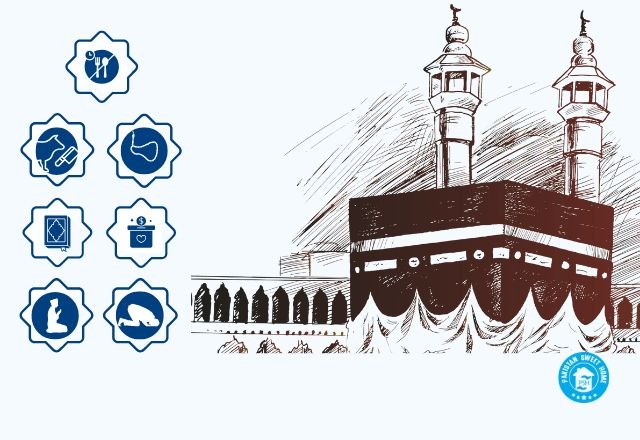
The Importance of Muharram in Islam
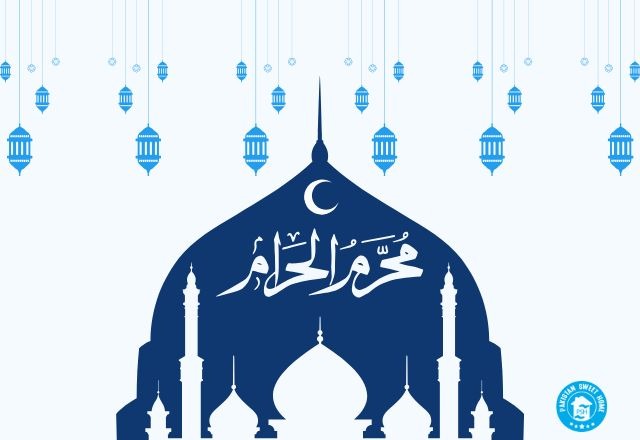
The Sacred Day of Ashura: 10th Muharram

1st Muharram: Start of the New Islamic Year

What is Ramadan: A Comprehensive Guide on the Holiest Month
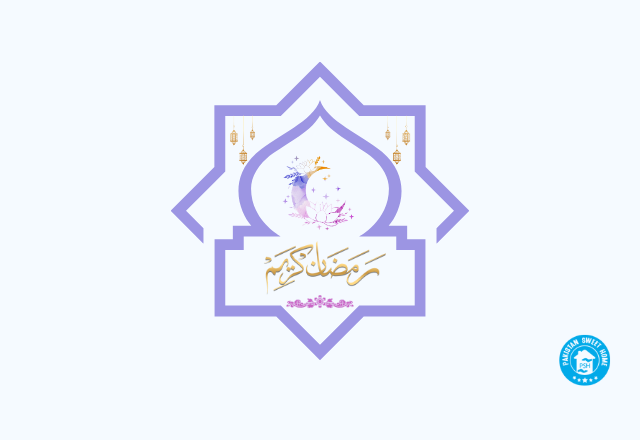
Understanding Rabi al-Awwal: Month of the Prophet's Birth

A Brief History of Ramadan

How to Prepare for Ramadan: Soul, Body and Mind

What is Suhoor in Islam?

What is Iftar in Islam?

How to Maximize Rewards in Last Ten Nights of Ramadan?

The Early Life of Prophet Muhammad (PBUH)

Orphans in the Mercy of Prophet Muhammad (PBUH)

What is Itikaf in Ramadan?

Safar Month: Meaning, History, Superstitions & Key Events
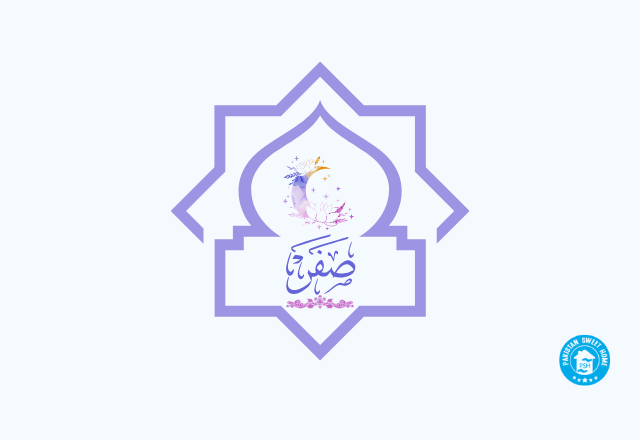
Rabi al-Thani: The Fourth Month of the Islamic Calendar

Jumada al-Awwal: The Fifth Islamic Month of Hijri Calendar
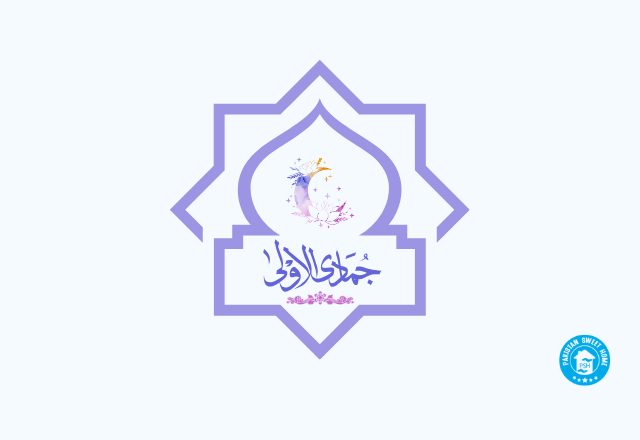
Jumada al-Thani: The Sixth Months of the Islamic Calendar

Islamic Month of Rajab: Meaning, Key Events and Innovations
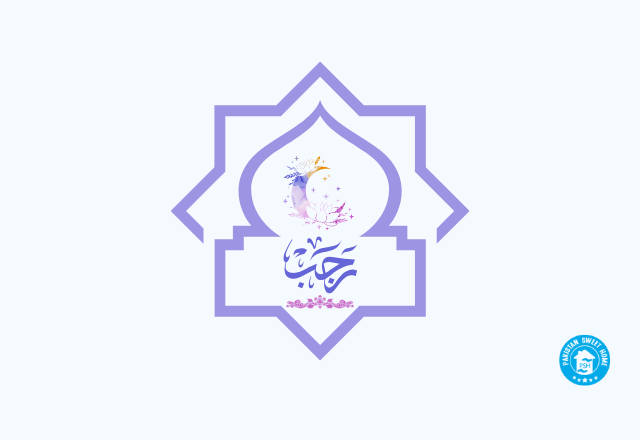
What Happened on the 15 Rajab?
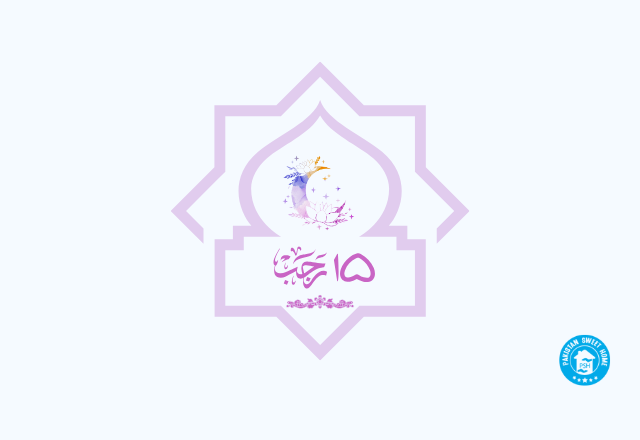
What Happened on 27th Rajab: Exploring Prophetic Night Journey

Shaban: Meaning, Importance, Events, Fasting & Ramadan Prep
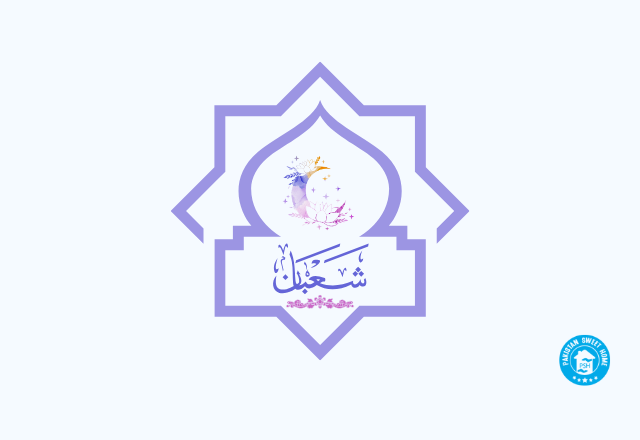
What is Shab e Barat in Islam?

Understanding Ramadan Taraweeh: A Complete Guide

Benefits of Ramadan: From Spiritual Growth to Better Health
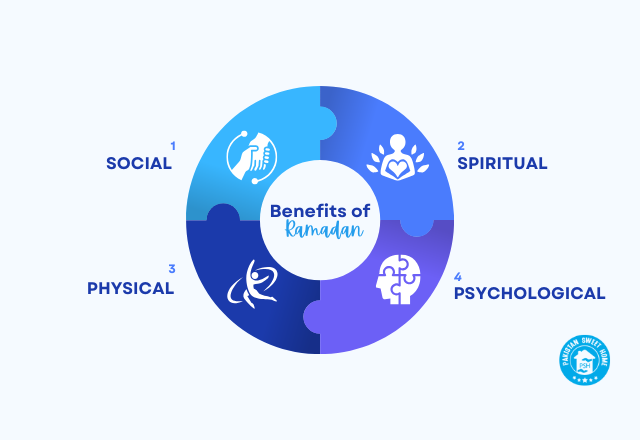
Significance of Ramadan in Quranic Verses
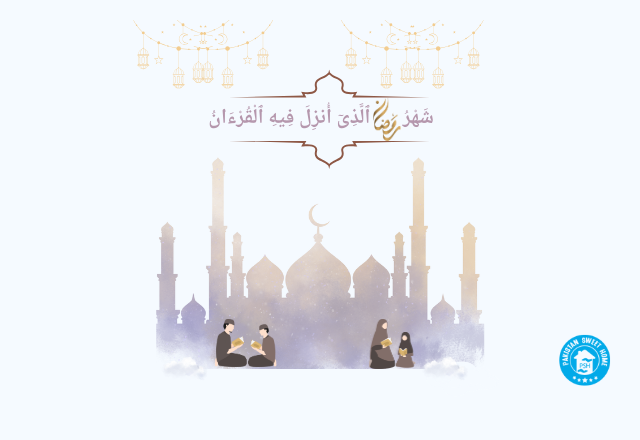
Hadith About Ramadan: A Prophetic Guide on the Month of Fasting
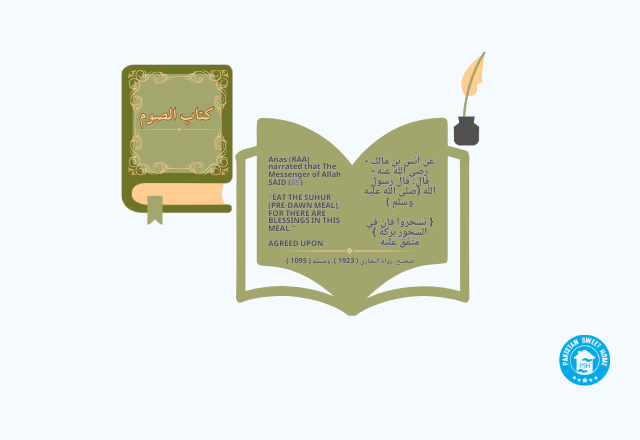
Is There a Specific Dua for Three Ashra of Ramadan?
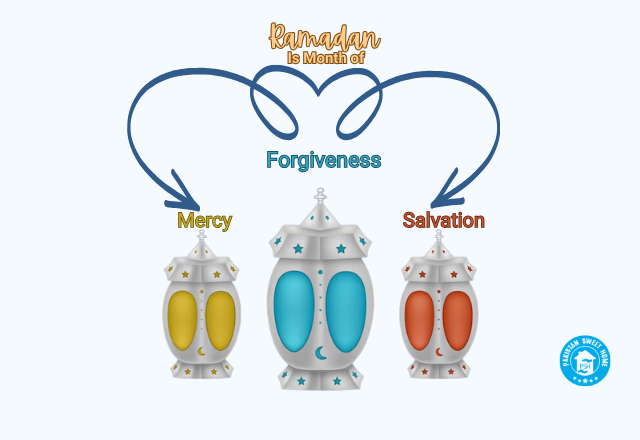
Eid al-Fitr Celebrations: A Three-Day Festival in Islam

Shawwal Month: Meaning, Significance, and Key Events
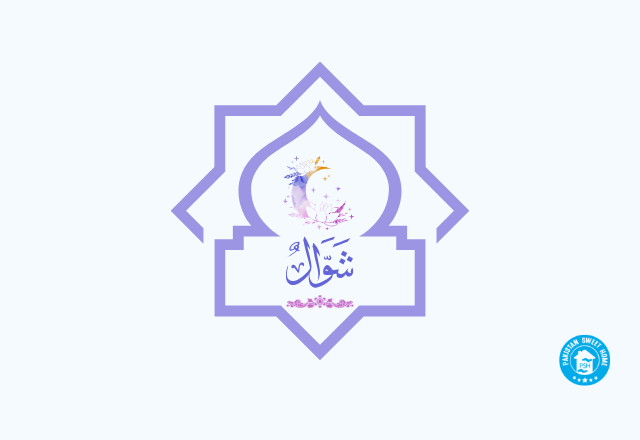
A Complete Guide to 6 Days Fasting of Shawwal
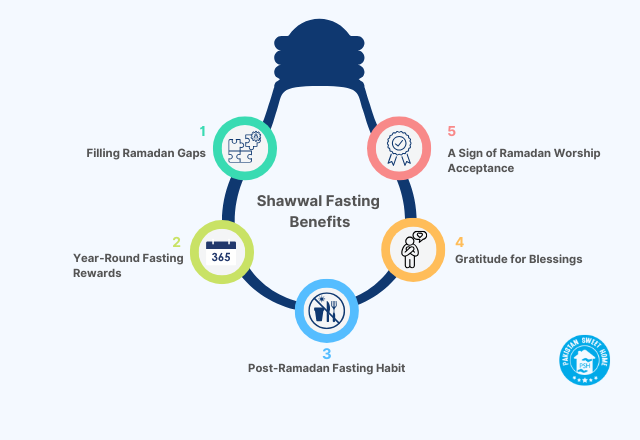
Dhul Qadah: Meaning, Significance, & Historical Key Events
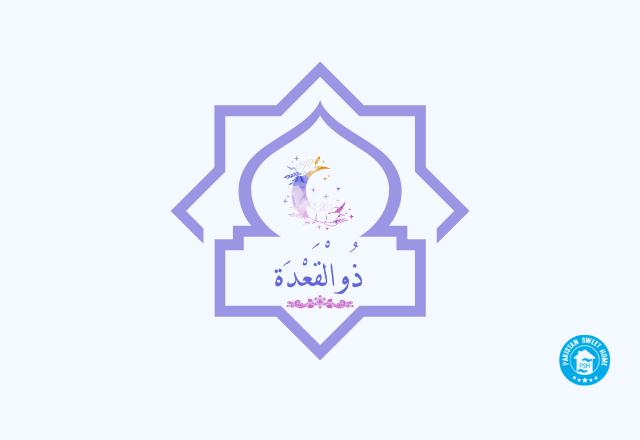
Dhul al-Hijjah: Meaning & Significance of Pilgrimage Month
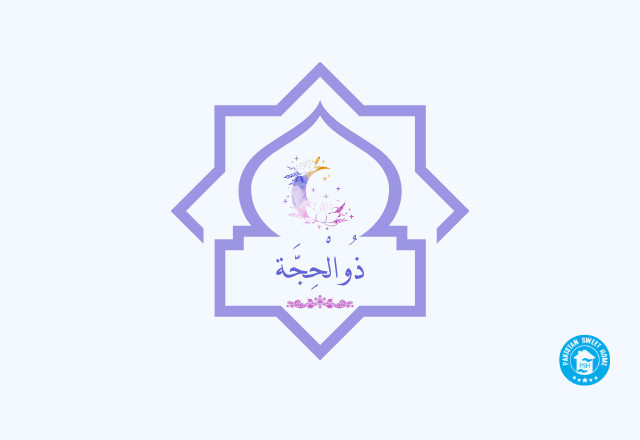
Eid al-Adha Celebrations: The Feast of the Sacrifice
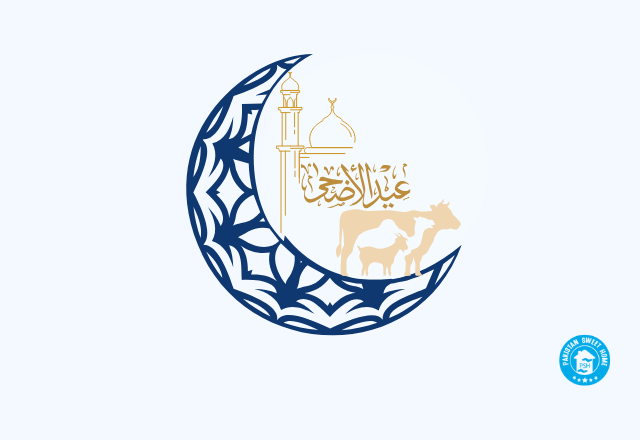
Hajj: A Comprehensive Guide to the Sacred Pilgrimage
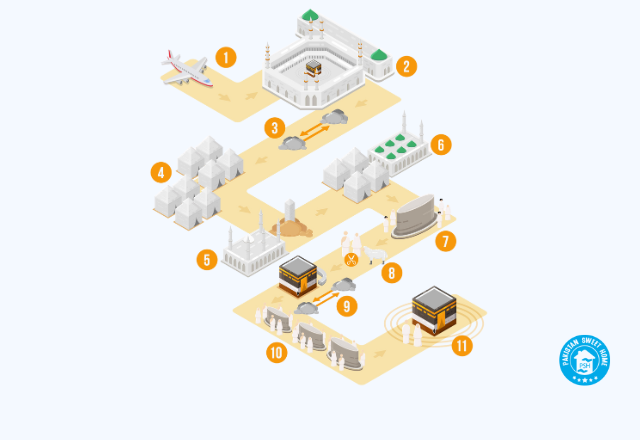
What are the 3 Types of Hajj in Islam?
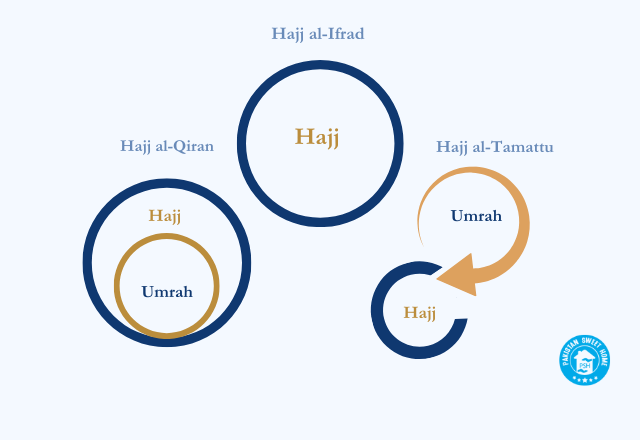
A Complete Guide on the Umrah (Minor Pilgrimage)
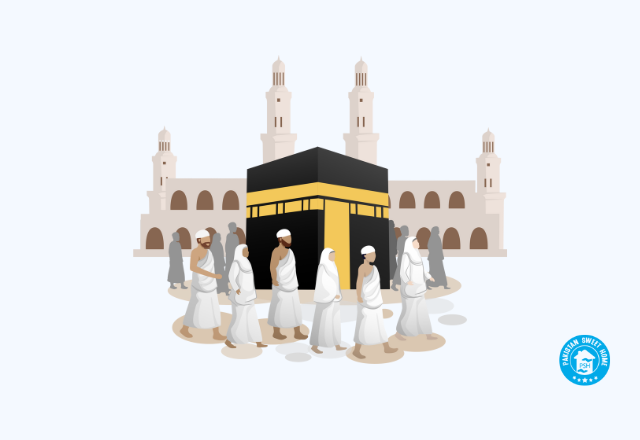
Understanding the Difference between Hajj and Umrah

What are the Three White Days in Islam?
